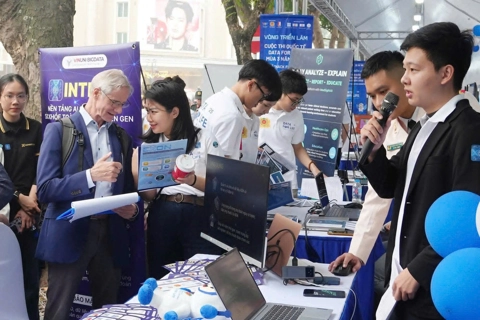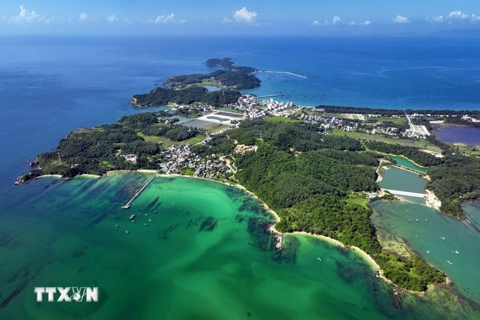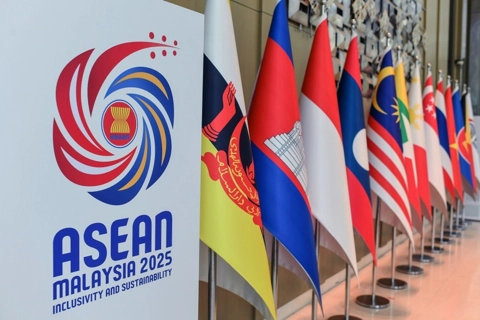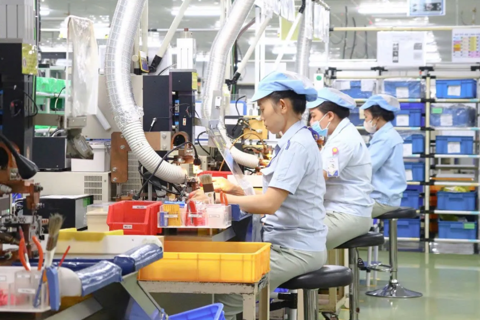Vietnam
Vietnam's undisputed sovereignty over the Spratly and Paracel archipelagoes
Apr 08, 2019 / 07:55 AM
The Philippines and China violated severely Vietnam`s sovereignty and territorial integrity over the Spratly archipelago as well as international law.
During the recent months and days, on and around the Thitu island belonging to Vietnam's Spratly archipelago there have been a lot of activities by the Philippines and China which undermined Vietnam's sovereignty there and clearly violated international laws. Similar activities of the navy and air force of the United States have also stirred concern. This island and the area around it became one political and security-related hotspot in the South China Sea, to which Vietnam refers as the East Sea.
Until now, Vietnam has repeatedly stated that the Thitu Island in specially and the whole Truong Sa archipelago in generally belongs to Vietnam and Vietnam has sufficient legal grounds and historical evidence confirming Vietnam's full sovereignty over the Hoang Sa and Truong Sa archipelagoes.
Thitu is the second biggest island in Vietnam's Truong Sa archipelago but is illegally administered by the Philippines. Despite continued strong protests of Vietnam, the Philippines started construction of a beaching ramp on the island and China sent a huge number of fishing boats with naval militia aboard to the maritime areas around the island. Those activities have made the situation there tense and complicated. They violated severely Vietnam's sovereignty and territorial integrity as well as international law. They also absolutely contradicted the spirit and words of the Declaration on the Conduct of Parties in the South China Sea (DOC) of 2002 to which both the Philippines and China are signatories.
Enhancing tension, ignoring international law and not adhering to the DOC make all issues related to this island and to the South China Sea more complicated and more difficult to be solved. That would be destructive to the efforts being undertaken now to successfully complete the negotiations between the ASEAN and China on the Code of Conduct of Parties in the South China Sea (COC).
Vietnam has good relationships with the Philippines and China, and frankly wants to further strengthen those ties. Vietnam's stance is clear and consistent that the sovereignty and territorial integrity of Vietnam must be respected by everyone, and all related disputes should be peacefully resolved on the basis of international law and the DOC. But the above-mentioned activities absolutely cannot be accepted. That is why Vietnam voiced deep concerns about it and strongly demands the other parties exercise restraint and immediately stop as well as do not repeat those activities in the future.
Tran Duc Mau is a former Vietnamese ambassador to Germany and Director General of the Policy Planning at Vietnam's Ministry of Foreign Affairs.

A view of Vietnam's Thitu island now illegally occupied by the Philippines. Photo: SCIS/AMTI
|
Thitu is the second biggest island in Vietnam's Truong Sa archipelago but is illegally administered by the Philippines. Despite continued strong protests of Vietnam, the Philippines started construction of a beaching ramp on the island and China sent a huge number of fishing boats with naval militia aboard to the maritime areas around the island. Those activities have made the situation there tense and complicated. They violated severely Vietnam's sovereignty and territorial integrity as well as international law. They also absolutely contradicted the spirit and words of the Declaration on the Conduct of Parties in the South China Sea (DOC) of 2002 to which both the Philippines and China are signatories.
Enhancing tension, ignoring international law and not adhering to the DOC make all issues related to this island and to the South China Sea more complicated and more difficult to be solved. That would be destructive to the efforts being undertaken now to successfully complete the negotiations between the ASEAN and China on the Code of Conduct of Parties in the South China Sea (COC).
Vietnam has good relationships with the Philippines and China, and frankly wants to further strengthen those ties. Vietnam's stance is clear and consistent that the sovereignty and territorial integrity of Vietnam must be respected by everyone, and all related disputes should be peacefully resolved on the basis of international law and the DOC. But the above-mentioned activities absolutely cannot be accepted. That is why Vietnam voiced deep concerns about it and strongly demands the other parties exercise restraint and immediately stop as well as do not repeat those activities in the future.
Tran Duc Mau is a former Vietnamese ambassador to Germany and Director General of the Policy Planning at Vietnam's Ministry of Foreign Affairs.








